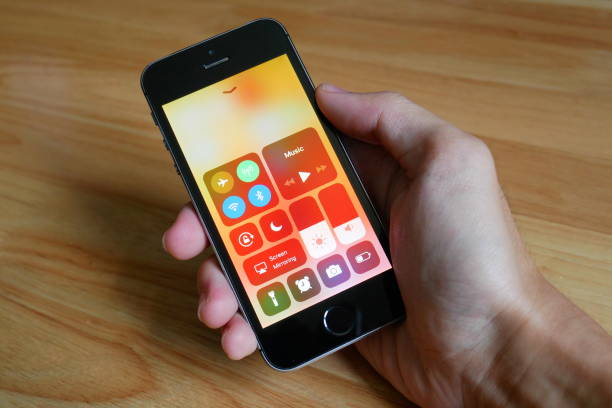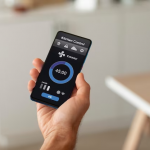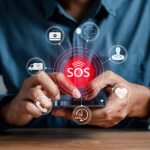In the evolving landscape of smartphones, the battle between Android and Apple devices is as fierce as ever. Mobile enthusiasts frequently contemplate whether the grass is greener on the other side. But is it truly worth abandoning your Android phone in favor of the newest iPhone? That’s the million-dollar question we aim to explore, dissecting the pros and cons to provide clarity on this modern tech dilemma.
Customization and User Experience
Android phones have always been heralded for their robust customization options. One thing that makes Android devices stand out is their ability to tailor the user’s experience, from the home screen layout to deeper system tweaks that are not available on iPhones.
Personalization Capabilities of Android vs. iPhone
Android’s open system allows users to manipulate widgets, install custom ROMs, and revamp the user interface according to their desires, something the newest iPhone might not offer to the same extent. This level of personalization results in a very good user experience that resonates with tech enthusiasts who enjoy having control over their device’s look and feel.
User Interface and Operating System
Switching to an iPhone could also mean saying goodbye to the freedom of a more configurable operating system. iPhones operate on iOS, which prides itself on simplicity and ease of use. However, for some, this simplicity translates to limitations when it comes to personalizing their devices.
Access to Settings and Adjustments
With Android, accessing settings and making adjustments could be done at one time from multiple areas of the system, providing much more flexibility. In contrast, the settings on Apple devices, while very user-friendly, are much more rigid. This difference highlights the “”closed”” nature of iOS, which prioritizes a uniform user experience over customization.

Hardware and Performance
When it comes to hardware, both Android and iPhone devices offer high-quality options. However, the performance of these devices isn’t only about the specifications on paper; it’s about how they work together with the software to create a seamless experience.
Comparison of Device Durability and Hardware Specifications
The durability of a smartphone is essential. Both platforms provide devices that can withstand daily wear and tear. iPhone’s Pro Max models, for example, boast a ceramic shield that’s touted as “”tougher than any smartphone glass.”” On the other hand, top-tier android phones can feature just as impressive durability credentials, such as Gorilla Glass and IP68 water and dust resistance.
Longevity and Software Updates
Software updates are crucial for security, new features, and keeping your phone running smoothly. iPhones are well-known for their longevity in this area, routinely receiving iOS updates for many years. Conversely, Android devices vary greatly, with some manufacturers providing timely updates while others lag behind.
| Feature | Android | iPhone |
|---|---|---|
| Customization | Full (widget, system UI, launchers) | Limited (widget on home screen) |
| Hardware Variety | Extensive (low to high-end devices) | Limited (one manufacturer, premium only) |
| Longevity of Software Updates | Varies by manufacturer | Long-term (5+ years typically) |
| Integration with Ecosystem | Depends on brand (Google, Samsung, etc.) | Fully integrated with Apple products |
| Cross-Compatibility | Good with multiple OS/devices | Optimized for within Apple ecosystem |
| Initial Cost | Range from budget to premium | Premium |
Performance Metrics and Real-life Usage
Performance-wise, Apple devices have consistently been lauded for their optimized system that ensures smooth operation, even when handling demanding tasks. Android devices, powered by a variety of chips depending on the model, also offer impressive performance; some are even geared towards gaming and can perform much better in that niche. Ultimately, real-life usage will work to highlight the strengths and weaknesses in terms of performance for both platforms. Users experience with the device will significantly depend on what they prioritize – whether it’s gaming, multitasking, or media consumption.
This exploration has demonstrated that when it comes to customization and user experience, both Android and iPhone have their merits. Android’s freedom and flexibility could appeal to a techie demographic, while the simplicity and cohesiveness of iPhone’s iOS will work wonderfully for those who appreciate a more curated user experience. Meanwhile, in terms of hardware and performance, there’s clear evidence that both platforms offer devices very good for a range of users, but the iPhone might be a good option, especially for those looking for long-term support and a secure, stable ecosystem.
Continuing in the following sections, we will delve into how the ecosystems differ, the cost implications of switching, and the security measures employed by both, before ultimately concluding on whether it’sworth making the switch from Android to iPhone. Stay tuned as we weigh other things that play pivotal roles in this crucial decision.

Ecosystem and Compatibility
The Apple Ecosystem Advantage
When discussing the switch from Android to an Apple device, we can’t ignore the tightly woven fabric of the Apple ecosystem. It offers a seamless experience that is often the envy of the Android camp. For users already embedded in the Apple ecosystem with devices such as Macs, iPads, and Apple Watches, an iPhone will work symbiotically with these gadgets in ways that Android devices might not.
Integration with Apple Devices and Services
iMessages, AirDrop, and continuity features like Handoff highlight the interconnectedness available only in the Apple ecosystem. New features like universal clipboard and the ability to take calls or send texts from your Mac are perks exclusively for those who own Apple devices. This integration is much more than a convenience—it’s an enhancement to the users’ experience, allowing for a fluid workflow that could be crucial for productivity.
Cross-Platform Compatibility and Third-Party Access
While Apple has made strides in breaking walls within its walled garden, offering compatibility with some third-party hardware and services, Android stands as the champion of cross-platform interaction. Android’s flexibility in working with gadgets and services from a variety of manufacturers ensures that an Android phone could also be a valuable player in a tech-agnostic ecosystem.
Cost and Value for Money
Financial Implications of Switching Platforms
A switch to iPhone comes with financial considerations. Apple devices are often seen as premium products with pricing to match. When assessing the worthiness of a switch to iPhone, one must also consider the costs involved.
- Upfront Costs and Resale Value: iPhones typically have a higher upfront cost compared to many Android phones. However, they also retain their resale value much better over time. Selling a used iPhone could get you a substantial return, partially offsetting the cost of an upgrade.
- Long-term Investment and Cost-efficiency: If we evaluate the investment over a longer period, the equation changes somewhat. iPhones receive longer software support and tend to remain functional and relevant for much more extended periods, arguably making them a more cost-efficient choice in the long run.
Security and Privacy
Security Measures and Privacy Policies
Apple has built a reputation around its stringent security measures and privacy policies. It’s not only about the encryption and tight control over app access but also the company’s stance on user data privacy that makes iPhone a solid choice for the security-conscious user.
Data Protection and User Safety
With constant updates aimed at keeping security tight, iPhones may offer peace of mind that many Android phones might not. Apple’s App Store is curated much more strictly than the Google Play Store, potentially reducing the risk of installing malicious apps.
Comparing the App Ecosystem Security
While high-profile Android phones come with excellent security features, the open nature of the system does leave room for vulnerabilities. It’s a trade-off between the openness that allows for a richer app ecosystem and the increased risks that come with it.

Making the Switch
The Transition Process from Android to iPhone
The prospect of moving from Android to iPhone could be daunting. The thought of transferring contacts, photos, data, and familiarizing oneself with a new OS is much, but the transition is not as challenging as it once was.
Data Transfer and Learning Curve
Tools like ‘Move to iOS’ have simplified the process significantly, addressing much of the pain that came with switching sides in the past. The learning curve for navigating iOS is very good, with many users able to adapt to the fundamentals of the system swiftly.
Support and Resources for New iPhone Users
Apple also offers a variety of support resources for new iPhone users, from online guides to free in-store workshops. These resources cater to new smartphone users and to those emerging from other platforms, making the switch much less intimidating.
Conclusion
Deciding whether to switch from Android to iPhone is a decision not to be taken lightly. Both platforms offer compelling features that serve different user needs. Personal preference plays a significant role – some appreciate the substantial customization and flexibility of Android devices, while others prioritize the seamless user experience and long-term value of Apple products.
Switching to iPhone could be a very good option for those looking for a mature, secure, and integrated ecosystem, particularly if they’re already invested in other Apple products. Yet, those who value system openness, hardware variety, and customization might not find it worth the leap. Ultimately, new features, performance, user experience, and cost-efficiency should guide one’s choice.
Reflect on your own tech philosophy, expectations, and which conveniences matter most in your daily tech use before jumping ship or standing pat. In the end, both platforms have their merits, and the decision is as personal as the phone that ends up in your pocket.
FAQs
1. Will my Android apps be available on iPhone if I switch?
Most popular Android apps have iOS counterparts, but some apps and games could be exclusive to the Android platform. Hence, you should check the availability of your favorite apps on the Apple App Store before switching.
2. Can I transfer all my data from my Android device to a new iPhone?
Yes, tools like Apple’s ‘Move to iOS’ app facilitate the transfer of most important data like contacts, message history, photos, videos, and more.
3. Am I going to lose Google services when I move to iPhone?
Not at all. Google services are available on iOS, and you can download apps like Gmail, Google Maps, and Google Drive from the Apple App Store.
4. How long will my new iPhone receive software updates?
Typically, iPhones receive iOS updates for about 5-6 years, which is much longer compared to most Android devices.
5. Is it true that iPhones have better privacy features than Android phones?
Apple devices are generally praised for their strong privacy features, including app permissions that are more restrictive and transparent. However, high-quality Android phones also offer significant privacy protections; the difference lies in the philosophies and the systems’ inherent structures.


